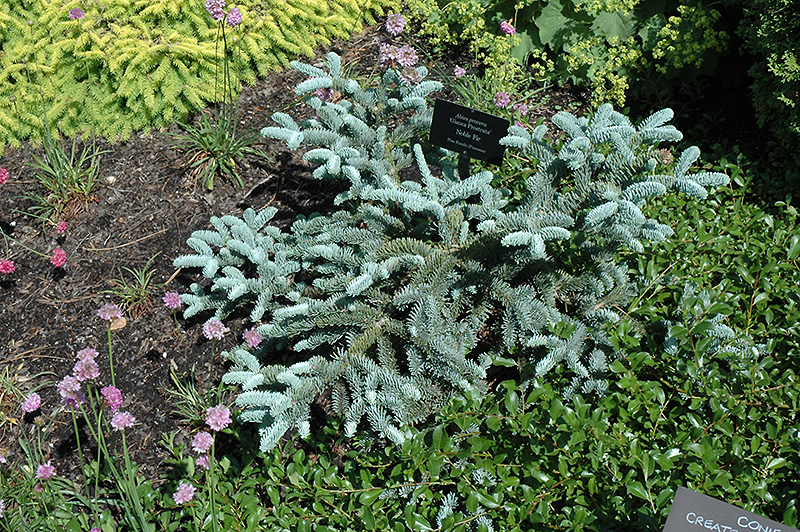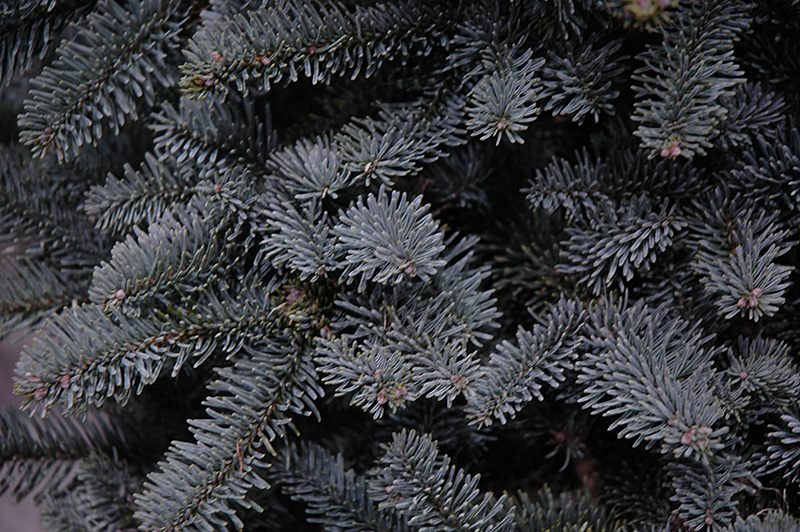Prostrate Blue Noble Fir Abies procera 'Glauca Prostrata' Height: 18 inches Spread: 6 feet
Sunlight:
Hardiness Zone: 5 Description: An attractive trailing evergreen with steel blue foliage all season long; a good groundcover for sheltered gardens, slowly spreads to cover an area although not aggressive; needs moist conditions and protection from drying winds Ornamental Features Prostrate Blue Noble Fir is a dwarf conifer which is primarily valued in the garden for its broadly spreading habit of growth. It has attractive steel blue evergreen foliage. The needles are highly ornamental and remain steel blue throughout the winter. Landscape Attributes Prostrate Blue Noble Fir is a multi-stemmed evergreen shrub with a ground-hugging habit of growth. Its average texture blends into the landscape, but can be balanced by one or two finer or coarser trees or shrubs for an effective composition. This is a relatively low maintenance shrub, and usually looks its best without pruning, although it will tolerate pruning. It has no significant negative characteristics. Prostrate Blue Noble Fir is recommended for the following landscape applications; Planting & Growing Prostrate Blue Noble Fir will grow to be about 18 inches tall at maturity, with a spread of 6 feet. It tends to fill out right to the ground and therefore doesn't necessarily require facer plants in front. It grows at a slow rate, and under ideal conditions can be expected to live for 70 years or more. This shrub should only be grown in full sunlight. It prefers to grow in average to moist conditions, and shouldn't be allowed to dry out. It is not particular as to soil pH, but grows best in sandy soils. It is quite intolerant of urban pollution, therefore inner city or urban streetside plantings are best avoided, and will benefit from being planted in a relatively sheltered location. Consider applying a thick mulch around the root zone in winter to protect it in exposed locations or colder microclimates. This is a selection of a native North American species.![]()
![]()
![]()
![]()
![]()
![]()
![]()
![]()
![]()
![]()
Characteristics
Applications
Ornamental Features
This guide is an online resource representing many of the varieties that we carry over the course of the season, and is intended for informational purposes only. Inventory varies seasonally, so we cannot guarantee that every plant will be in stock at all times - please contact the store directly for current availability. It does not include our entire selection of plants, so be sure to visit our store to see varieties that may not be represented on this list.



